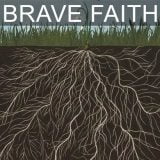The LiFe Markers of Rites of Passage

Prom and graduation seasons have become ones of survival–will we lose another teen to something reckless? You thought I was just talking about the schedule of your life. Sorry, I’m going to be a bit darker here. There was a time when prom and high school graduation were significant rites of passage signaling a teen’s entrance through adolescence and into adulthood. Prom was a chance to dress up in adult clothes and promenade with a date. Graduation was a ceremony to honor the completion of the child part of one’s education. These were rites of passage given by adults to recognize the emerging adult.
Over time we have turned over these rites to the peer culture. Prom has turned into all kinds of other “adult” behaviors away from the presence of adults such as drinking, reckless use of vehicles, and sex. While graduation still involves the family, right after the actual ceremony the new graduate takes off with his/her fellow new graduates, minus the adults again, to celebrate in the same reckless “adult” ways.
Too often teens are growing up cocooned in their peer group. Teens already have a natural aversion to adults due to normal adolescent development. But in no way does it mean that they are to be left alone in this process nor do they want to be left alone in this process. Every study says so.
The peer group may be supportive and accepting for adolescent growth bumps, but they clearly lack the wisdom that only comes with age. And with that lack of wisdom and lack of adult recognition from those who have “made it,” we have teens growing up but not knowing what growing up is or when they have grown up. Chap Clark, for Fuller Youth Institute, did a great job of surmising this new life stage of extended adolescence:
“By the 1960s the end of adolescence was still generally accepted to be around age 18 to 19, for young people left high school and pretty much decided who they were and what they were going to do with their lives. While the social revolution of the late ’60s and early ’70s was fueled by the dreams of a newly emerging young adult force willing to take responsibility to right the wrongs of former generations, it further lengthened adolescence. For those who could afford it, college moved from being the preparation phase for young adults to halfway houses for old high schoolers. ‘What are you going to study?’ was a question that actually made sense in the early 1970s-but it’s met by blank stares today! In contemporary society, graduate school is often a place to ‘find oneself,’ and numerous studies attempt to understand the historically unheard of phenomenon of 30-somethings who have Ph.D.s living at home or waiting tables who have yet to ‘discover what they want to do.'” (Chap Clark, “Youth Ministry in the Age of Delayed Adulthood“)
This is so true, isn’t it?!
Not knowing what being grown is and the collective abandonment by adults, teens and young adults have made their own rites of passage by joining a gang or fraternity or simply having sex (not that unmarried sex is ever that simple). But then they find out (and too soon) that sex doesn’t necessarily lead to love which doesn’t necessarily lead to marriage or even commitment. This so-called rite of passage didn’t lead to anything grown up.
Koren Zailckas is a young adult writer who wrote an introspective autobiography of her life as a teenage drunk called Smashed. While writing about what happened during her freshman year of college she had this to say:
“En route to the party, we amble up the sloped sidewalks of North Campus, past the domed roof of the chapel, the university bookstore, and the alumni center, which was once a frat house. …As we walk, we compare life stories. Adult strangers do this by giving an inventory of their careers, their spouses, their children’s schools; by trading names of decorators and personal trainers, recipes, and favorite brands of driveway sealant. And as girls, we do it, too, by quantifying experiences. Even as strangers, our conversations drift back to the personal stuff of drinking, sex, and drugs. Within an hour of meeting Tess, I may not be able to tell you the last book she read, what she does for exercise, or if she eats or skips breakfast; I may not even know her last name (in college, I’ll end up knowing almost everyone by first name only), but I know how many boys she’s slept with, whether she prefers beer or liquor, and if she does speed to study. We don’t necessarily flaunt these facts because we’re proud of our delinquency; we do it because the confessions represent our only milestones and emotional investments as of yet. They are the only way we can think to distinguish ourselves.” (Smashed, p. 117)
My hope is to give teens true ways in which they can distinguish themselves by intentionally using the power of rites of passage. We need to give our teens markers, including spiritual markers, to guide them into adulthood. Simply, part of what we need to do to grow our teens is to let them know when they have taken a step towards growth.
As far as my count goes, these are the rites of passage that happen during the traditional tween and teen years:
Acknowledged as a teenager
Confirmation
first mission trip
entry to middle school
entry to high school
driver’s license
car dating or prom
high school graduation
moving out of family home
I invite you also to make “big deals” over these life events in your child’s life. Here are some random ideas:
- On your teen’s 13th birthday, write 40 affirmations about him/her. And have a mentor or two do the same. Present these over a dinner.
- For a teen boy, create some sort of hero’s journey like 3 days of hiking and camping or something big and tangible.
- For the first year of high school, set up a Year of Challenges. Have a long sit down talk and plan 8 to 12 challenging things to be accomplished during the first year of high school. Just when your child may start to feel inept during this first year at the big high school, he/she can actually be accomplishing lifetime memories and empowerment.
- For the driver’s license have the new driver drive the family to dinner.
- For car dating the first car date your child should have is with you. If you have a daughter, show her all the manners she should expect and accept on a date. Teach her to accept nothing less. If you have a son, teach him how women are to be treated on a date. Explain the whys too.
- For high school graduation, write out your blessings over your child in elegant script and on parchment. Present this to him/her after the graduation ceremony is over.
- For the last year of high school teach a Sunday School class together. This gives you a full Sunday School year to purposely spend time together and to share faith experiences together. Due to the crazy-senior-year schedule, seniors tend to drop out of church. This also helps your teen have one last great year in your church.
Do you already have some rites of passage for your family? Would you like to share them with the rest of us? Has your brainstorming brain begun to think of ideas for your family? Would you like to share them with the rest of us? Please leave your ideas in the comments so we can all brainstorm together.
(photo credit: Pexels.com)






Comments
Trackbacks & Pingbacks
[…] weekend as a way to recognize that they were no longer students and minors but adults. This was the rite of passage. We were acknowledging that they now had to make adult decisions, particularly an adult decision […]
[…] The rite of passage of high school graduation and college graduation has been a part of my life for my entire adult life because I have been a youth pastor my entire adult life. And I love to celebrate rites of passage. […]